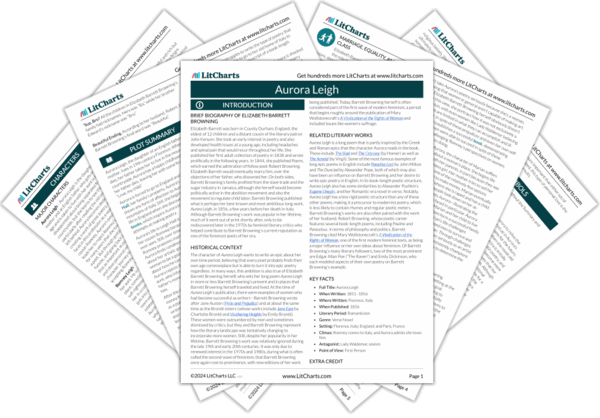Marian’s life, which began with abuse and tragedy, continues to go in dark directions, reflecting the challenges she faces both because she is a woman and because she comes from the lower class. After hearing Marian’s story, Aurora learns how to look beyond her own prejudices. Marian’s comparison of rape to murder shows how strong the moral codes around sexuality were at the time and how severe the consequences were for breaking them, even for victims like Marian.
